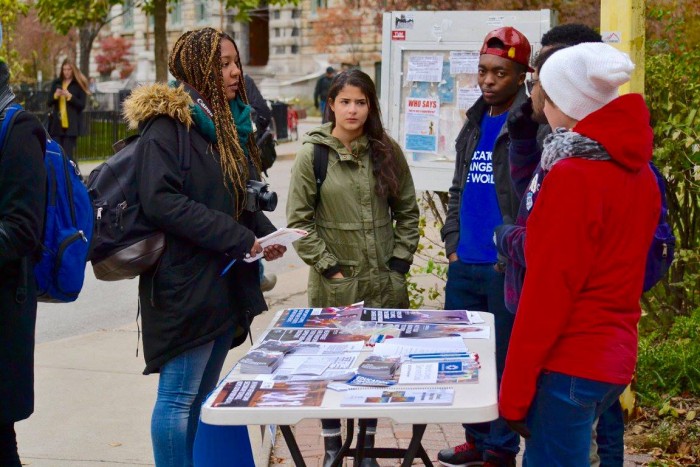Controversy stirred last week after the World University Service of Canada (WUSC) announced an event called, “Mock Refugee Camp on Campus.” While similar events have been held at other Canadian universities, some members of the McGill community saw the event as an insensitive way to portray and trivialize a very complex and serious issue. In response to this criticism, as well as the creation of a Facebook group to protest the event (since taken down), the WUSC renamed and restructured the event into an info session.
Social media was the forum for the debate, but the online discussion led to tangible change in the nature of the event. Despite the controversy, WUSC’s handling of the criticism ultimately helped them to accomplish their goal of increasing student awareness about forced migrations and refugees. But the discussion cannot remain limited to the event itself; the final compromise of the event must be taken as an opportunity for students and organizers alike to be self-critical of the presentation of future events around sensitive issues.
WUSC initially decided to use tents to capture people’s attention as well as to create an interactive space that would allow students to better engage with the experience of refugees in refugee camps. While it may not have been what the organizers intended, the extensive debate generated a lot of interest for both the event itself as well as the refugee crisis as a whole. Active participation in the dialogue about how to best present the humanitarian crisis engaged students in ways that the event itself could not have achieved; in previous awareness events hosted by WUSC, only a handful of students attended. Whether they were furious at the WUSC or stood in support of them, McGill students were at least made aware of the event. It must be taken as the starting point to find more places to engage students in the issue of refugees and ways that the McGill community can support international crises.
The discussion helped develop an understanding of the role of emotional responses behind political and social issues. The result was a productive adaptation of the event that accommodated the concerns of students without compromising the purpose of the event, which was to make information about the refugee crisis accessible. Many of the executives of WUSC and the students that initially raised their concerns about the event are refugees, or children of refugees themselves. One student who was against the mock tent expressed that the event commoditized refugee people’s experiences, and mentioned that the event could trigger traumatic memories. Some WUSC executives are refugees themselves, and contended that such an event would be productive to bridging McGill students to their experience as refugees.This helps paint the emotional complexity of the issue; these individuals have each gone through unique experiences involving forced migration, which has affected their emotional response to the issue in varying ways. Rather than marring the event, such differences were recognized and taken into consideration.
Ultimately, WUSC addressed the problems people expressed with the event and changed it accordingly by choosing not to use tents, as expressed in their statement on the matter. This lends a lot of credibility to the group and makes it easier for people to understand their purpose and goals. More importantly, it is a step towards building a positive and open relationship with the student body, particularly the people who stepped forward with their concerns. Going forward, WUSC must tap into the interest garnered by the controversy in order to continue the conversation about refugees on campus.








